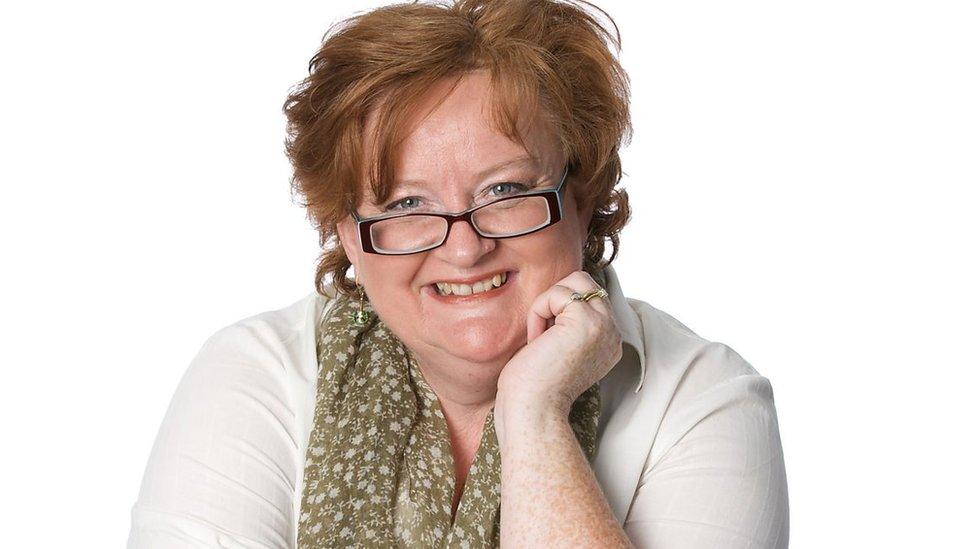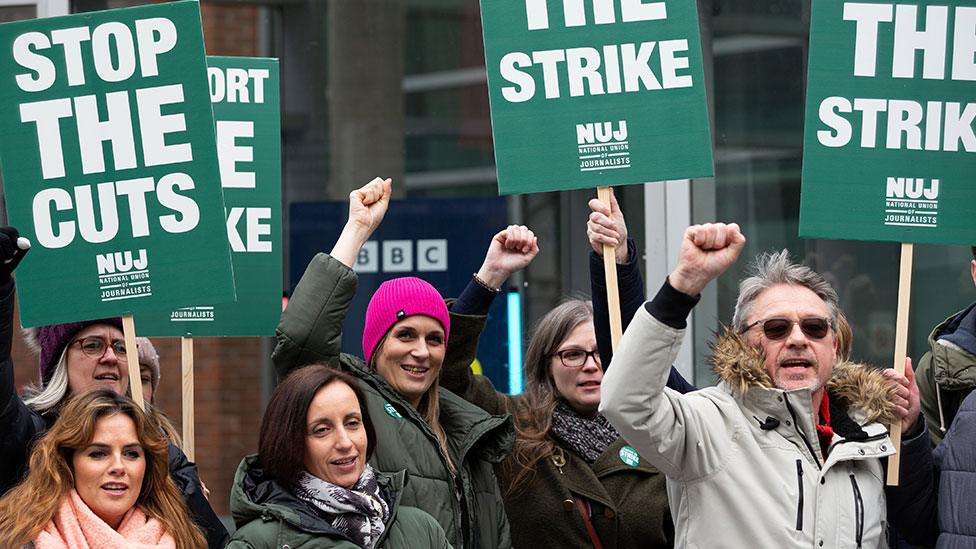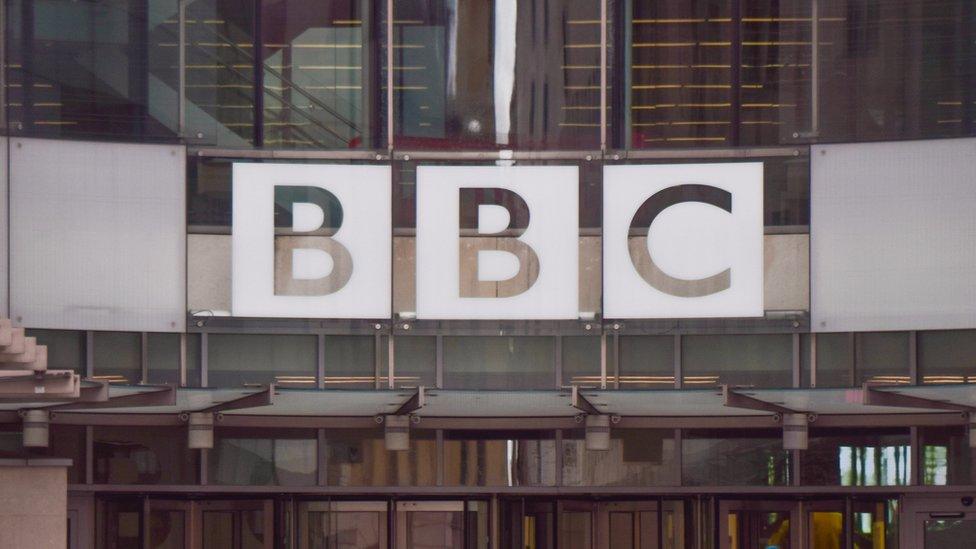Mark Cummings: Presenter to leave BBC Radio Gloucestershire
- Published

Mark Cummings said he decided not to apply for his job "when put into a redundancy scenario"
BBC Radio Gloucestershire's long-serving breakfast show host is to leave the corporation.
Mark Cummings is leaving after 18 years on the show amid "huge" changes to local BBC radio.
The news comes a week after the station's mid-morning presenter, Anna King, also announced she was to leave.
The BBC said it appreciates that changes are "difficult". The National Union of Journalists has announced a 48 hour strike over Local Radio changes.
Mr Cummings made the announcement on the breakfast show on Monday.
He said after after 40 years in radio, and 30 in Gloucestershire, leaving will feel like an "excruciating emotional wrench".
Mark Cummings has announced he's leaving the Breakfast Show after 18 years in July
"I decided not to apply for my job when put into a redundancy scenario, but rather take this opportunity to move into a completely different life and leave the party a couple of years earlier than planned.
"This unique relationship between listener and presenter, I feel, is something the BBC should invest in, should sing about from the rooftops as it's a BBC service that no one else offers.
"I've got my greatest wish which was to choose to end my presenting career doing the show I love."
Mr Cummings is set to leave his position in mid-July.
On social media earlier this month Ms King said she believed the changes to local BBC radio "are not for the benefit of the listeners", external.
"So I decided it wasn't for me, " she said.

Anna King said: "I decided it wasn't for me"
"From shaggy perms and Walkmans to hair dye and knee replacements. 37 years at the microphone, I hope I made a difference."
Ms King is also set to leave her position in mid-July.
A BBC spokesperson said she has been a "part of the fabric for Radio Gloucestershire" across four decades.
"She has been a friend and determined champion for the people of Gloucestershire. We respect her decision to leave and know everyone will miss her very much," the statement said.
"Many of our presenters will continue to present on local radio at the end of this process in new presenter or producer roles.
"Our aim is to achieve a better balance between our local online and broadcast services at a time when millions of people increasingly turn to their mobile first for news and information.
"The changes see no reduction in funding or overall staffing levels across our 39 local bases in England."
The changes have led to the National Union of Journalists announcing a second strike date in June.
Paul Siegert, NUJ national broadcasting organiser, said: "This fight is about the heart of the BBC's public service remit.
"Local news is vital not just so people can be informed to be able to participate in local democracy, it binds communities together and for the many who will not be able to access local news digitally they will lose the familiar presenters who have become their friends.
"Local radio is not expensive in terms of the BBC's budget and we believe that the BBC could easily solve this dispute."

Follow BBC West on Facebook, external, Twitter, external and Instagram, external. Send your story ideas to: bristol@bbc.co.uk , external
Related topics
- Published16 May 2023

- Published31 October 2022
